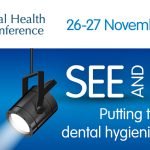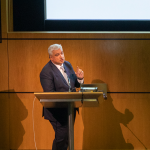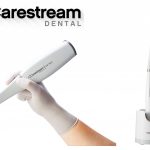“You don’t have to be completely gaga to work in the NHS General Dental Service, but it helps ease the pain.” – Unknown Dentist, 2012
If you’ve got a lot of time on your hands, type ‘dental’ in Google News and see what happens.
You’ll be swamped with financial projections in stories exploring pressing questions like ‘how the wooden wedge market will be doing in 2025,’ but almost invariably, you’ll be hit in the face with regional Healthwatch reports on how patients are struggling to access NHS dentistry in places like Manchester, Norwich and Brighton. In fact, you name it, it’ll have an access crisis.
I’ve been retired from NHS dentistry over two years now, and the only crisis I’ve personally experienced, so far, was putting the wrong bin out, late one Monday night. I swear, one neighbour was standing in his living room, giggling, while I ran out with the correct green bin before the recycling men drove off on the Tuesday morning.
Let’s face it, the NHS General Dental Service has been in crisis since well before Covid-19 came along, and well before the cursed UDA-based contract was forged in a diabolical underground den of evil, somewhere in Whitehall.
Around the time the current contract was introduced, I attended a CPD course in Birmingham, at which a well-known Professor of Restorative Dentistry revealed that he had been in the vicinity of a meeting at which the then-Health Minister was in attendance. He overheard the minister refer to the contract negotiations, saying “This time we’re going to GET the dentists.”
And so, they did.
Those practitioners that could see the Government wanted us to willingly throw ourselves off the clifftops like scrubbed-up lemmings, sensibly saved themselves by giving up their NHS contracts, while the rest of us flicked the acrylic dust off our scrub tops and threw ourselves into the swirling abyss of targets and clawback.
I stayed with the NHS for the whole 31 years of my career, mainly due to an ingrained and perhaps misguided idea that since all of my training had been paid for by the taxpayer (I received a full grant in the 80s), I owed it to those same taxpayers, to offer my services on the Nash.
I didn’t blame those who ‘went private’ in the least. The private dentists I met at meetings over the years seemed relatively relaxed compared to NHS colleagues, who usually sat in lecture room seats in the foetal position. (Some of those lecture theatres could be cold, so it was a fair strategy.)
We’ve waited for a new contract for years now, and call me a cynic, but when (or if) a new contract ever comes, it’s almost certainly not going to be the answer to our prayers.
The Government will win, whatever.
UK news sites are full of wild stories of patients being ‘told’ to either go private or wait up to three years for an NHS appointment, and I see dental sites and social media full of advice from experienced professionals to their younger NHS colleagues, telling them to ‘upskill’ and then go private.
I attended a two-day mini-implant course a few years ago, and met three young graduates from the same dental school, who had been in practice for 18 months. All three of them were in NHS practice, and all three said they’d ‘had enough’.
Working in the Nash is hard and stressful, and practitioners are certainly far from being overpaid. (As for the 3% NHS uplift – a lot of associates won’t see it, so don’t hold your breath.)
So how do you solve the NHS dental ‘crisis’ and stop dentists from going private?
Well, it’s almost certainly not by pledging to adjust medical and dental school places to allow over 9,000 opportunities for prospective students, as the Government has just done.
“As we look beyond the pandemic, it’s incredibly important we safeguard the future of our NHS by ensuring there is a pipeline of high-quality staff to bolster the workforce in the years ahead,” said Secretary of State for Health and Social Care, Sajid Javid on the Gov UK website.
Is that the way to safeguard the NHS? By loading the pipeline at one end, to find the pipe has sprung a leak half-way along and has been oozing its contents into the private sector like a sloppy takeaway through a paper carrier bag?
The Government’s strategy shows a complete lack of insight into the fundamental problems facing NHS dentistry – a lack of central funding and bizarre targets, that colleagues abroad tell me are ‘impossible to comprehend’.
A return to a properly funded, fee-per-item system would be one way of doing it. And I obviously don’t mean £6.80 for an occlusal on a fractious child’s lower six (my cut was £3.40 before tax).
Actually paying fees for giving oral hygiene instruction and dietary advice, enabling the profession to utilise, fully, the army of dental care professionals more capable of carrying that task out would be a sensible approach.
But that’ll never happen.
That’s my penny’s worth. I have to go and draw up a bin-day timetable.
About the Author
Ollie Jupes is the pseudonym of a former NHS dentist. He monitors dentistry on Twitter as @DentistGoneBadd.














